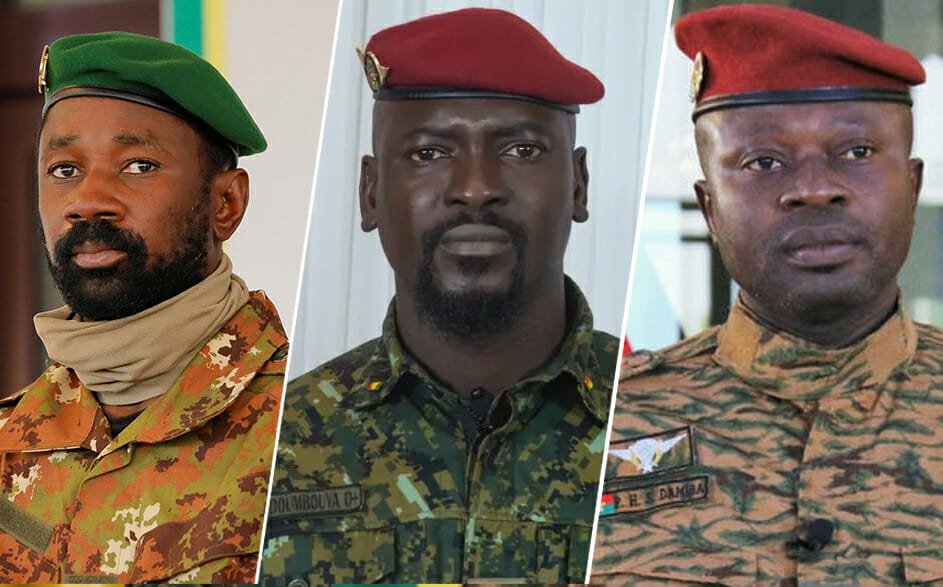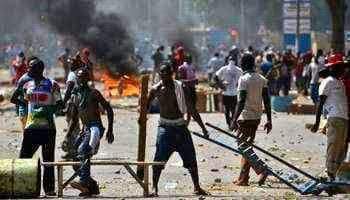Wave of anti-democratic upheavals in West Africa: ECOWAS faces a big challenge

NEWS ANALYSIS
BY LUC ABAKI
Over the past two years, several French-speaking West African countries went through serious upheavals leading to regime changes by way of coups. Formally speaking, one can mention Mali which faced two successive coups in less than a year: a first one on August 18, 2020, which overthrew then-President Ibrahim Boubacar Kéïta (IBK), and a second one on May 24, 2021, which brought down the then-interim government. Then came the case of Guinea-Conakry where Col. Mamady Doumbouya on September 5, 2021 overthrew President Alpha Condé who had just somehow won a third term. Then Burkina joined the club on January 24, 2022 when President Rock Christian Kaboré was forced to release power following a mutiny led by Lieutenant-Col Paul-Henri Sandaogo Damiba.
This virus of regime change by way of military coups in the community space called the Economic Community of West African States (ECOWAS) calls for an in-depth analysis of their causes.
In the case of Mali, not unlike that of Burkina Faso, the two regimes’ inability to deal with the frightful phenomenon of terrorist attacks was pointed to. Indeed, since the dismantling of the late Libyan leader Muammar Gaddafi’s regime in 2011, Mali has had to deal with the frequent invasion of armed Tuareg rebels who, after fighting in Libya, grabbed the available weapons and engaged in violent attacks in the northern region of Mali.
Despite the dispatching of thousands of French special forces and UN blue helmets, the terrorists kept forging on and seized several towns in the northern and central regions. The Malian officers at the front, seeing the weakness of IBK’s regime and the unacceptable degree reached by months-long social unrest in Bamako, decided to overthrow the president. Burkina Faso faced the same imbroglio, with repeated terrorist attacks that President Kaboré had trouble stopping, while both civil and military casualties kept rising by the thousands. His overthrow was welcomed by part of the Burkinabe population as a real relief, leading to shows of support for the putschist government in Ouagadougou, the capital, and other cities.
However, contrary to both Mali and Burkina Faso where the terrorist threat was the leading cause, the putsch in Guinea was in reaction to President Alpha Condé’s push to win a third term at the age of 83. He was so eager to cling to power and enjoy it that he organized an electoral hold-up through a pseudo referendum to reset the constitution’s clock.
Undoubtedly an unhealthy act, this caused several Guinean civilians to die as a result of the legitimate demonstrations that were violently crushed by the security forces. That is not to mention the imprisonment of hundreds of activists, opposition and civil society members. The political atmosphere in Guinea was bleak while the economy was on its knees, which compelled the military to step into the politic arena with the use of force.
The Economic Community of West African States founded in 1975 to work toward sub-regional integration and the well-being of the people through the promotion of economic values, the lawful state and public liberty, watched these political upheavals in disbelief. From one summit to another, the leaders of the community, overwhelmed by the events, imposed a slew of sanctions—some illegally—on Mali and suspended the other two countries.
Despite the multiple sanctions imposed by ECOWAS on the military putschists as a disincentive for others, the unease lingers and tends to spread to other countries in the region. Case in point, the failed coup attempt in early February in Guinea Bissau where heavily armed soldiers attacked the presidential palace in broad-day light while the President of the Republic, Umaro Embalo, was leading the weekly cabinet meeting. Although it failed, this sad attempt which adds to the list of coups in West Africa is indicative of the fact that the reflex to use arms as a shortcut to grab power is much alive and growing.
How, then, does one explain the sudden return of coups in a community that not only formally forbids these non-orthodox practices, but is supposed to have removed this anti-democratic virus thanks to frequently organized elections that the community itself has always praised?
The leading case of these political upheavals is the lingering bad governance that leads to a democratic deficit and a total disconnect between the actions of the leaders and the deep aspiration of the people who are now awake. Most the regimes that have been overthrown by coups in this space have particularly failed to show good governance, leading to corruption, laxism, nepotism and several other failings that have drowned the management of these countries in a type of torpor driven by opacity and injustice that naturally results in frustrations and revolts. In the case of Mal, for example, the current interim prime minister, Choguel Maïga, frequently mentioned the embezzlements of funds allocated for fighting jets, helicopters, and materials for the army. Such bad practices are not conducive to Living Together or building the people’s trust in their leaders.



